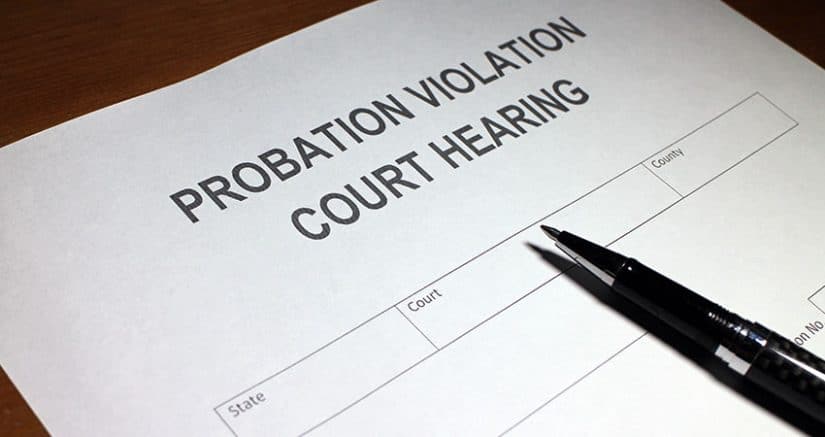Probation Violation in Miami
What is a probation violation? It’s when someone on probation substantially and willfully violates their probation. Probation hearings are different from other criminal cases because the standard of proof is much lower. There are less constitutional and legal protections than there are in other types of prosecutions.
What is the Definition of Probation?
Chapter 948 of the Florida Statutes says that probation is classified as a kind of community supervision. Defendants on probation are required to remain in contact with their probation officer and follow certain special conditions as ordered by the judge, as well as the standard terms and conditions of probation.
Probation is viewed as a privilege in Florida and not a guaranteed right. Some Florida Supreme Court decisions hold that probation is not even a formal sentence. It is looked at as a “grace” instead of a sentence, with the main idea being that the defendant is ultimately rehabilitated while the community is kept safe.
Probation Violations
A probation violation is established when the prosecution meets a basic standard of proof to show that the probation violation was willful and substantial.
Standard of Proof
The trial court can only revoke probation if the prosecution presents enough evidence to show that the defendant substantially and willfully violated a condition of their probation. Determining if a violation was both substantial and willful has to be considered on an individual basis. The state must prove that the defendant violated their probation by a “preponderance of the evidence.”
There are many cases where the prosecution attempted to revoke probation, but there was insufficient reason to revoke the probation. A judge will decide this on a case by case basis. It is imperative that you have a good criminal defense lawyer in Miami if you’ve been told you’ve violated your probation. It’s a good idea to get in touch with a criminal law firm in Miami that specializes in probation violations if it has been alleged that you’ve violated a condition of your probation. Your probation could be revoked, and you could go to jail.
A criminal defense attorney in Miami is going to work with you to determine whether or not you actually violated your probation as alleged. It is not enough for a probation officer to just say that you did. A Miami probation violation lawyer can challenge a wrongful allegation in court.
Probation Violations Must Be Substantial and Willful
Florida law states that a defendant can only have their probation revoked when he or she has willfully violated a condition of their probation. A trial court has a lot of discretion in determining whether a defendant has deliberately and willfully violated their probation.
If a defendant has made reasonable attempts to follow through on the conditions of their probation, then their probation violations cannot be considered willful. The prosecution has to prove it with hard evidence, and they have to show that it was both substantial and willful.
What are the Common Types of Probation Violations?
In Florida, the most common probation violations fall under five major categories: a new criminal offense has been committed, a drug test has been failed, the defendant did not meet a financial obligation, the defendant did not complete a court-ordered program, or the defendant missed an appointment. If you’ve been told you violated your probation, contact a Miami probation violation attorney immediately. A probation violation in Miami can land you in jail.
Probation Violation Penalties
When probation is revoked, the court can impose any sentence that could have been imposed originally on the defendant at the time of their first sentencing. This means the defendant could be sentenced up to and including the maximum exposure for the original crime.
Probation Violation Proceedings
If a defendant is alleged to have not met the conditions of their probation, the supervising officer will submit a special affidavit to the court called an Affidavit of Violation. If it involves a felony case, a Department of Corrections Violation Report will also be submitted. The affidavit is just a sworn statement by the officer about their reasons for believing that the defendant violated their probation.
When the affidavit is received, the state attorney will look at the allegations, and they will determine whether reasonable grounds exist for withdrawing the violation. If the state attorney believes the allegations are true, they can request a warrant for the defendant’s arrest.
The defendant will then face an arraignment on the probation violation charge, and they will be forced to attend a special hearing where the prosecution will bear the burden of proving that a substantial and willful violation of probation has taken place.

What is Compelled Testimony From a Defendant?
A defendant on probation can be forced to testify in a probation violation proceeding, even if that testimony could put the defendant at risk of incriminating himself. It is important to have a competent lawyer by your side to help you prepare your testimony so that you don’t say something incriminating. You don’t have your 5th Amendment rights at a probation violation proceeding, so you’re going to want to have a good attorney by your side.
Get in Touch with a Miami Criminal Defense Attorney Today
If you’ve been told that you violated your probation, you need to get in touch with a probation violation attorney immediately. There is nothing worse than facing a tough new jail sentence from a judge with the power to find you in violation. If you can get a good probation attorney to prove that you didn’t violate your probation substantially and willfully, then you won’t have your probation revoked.



